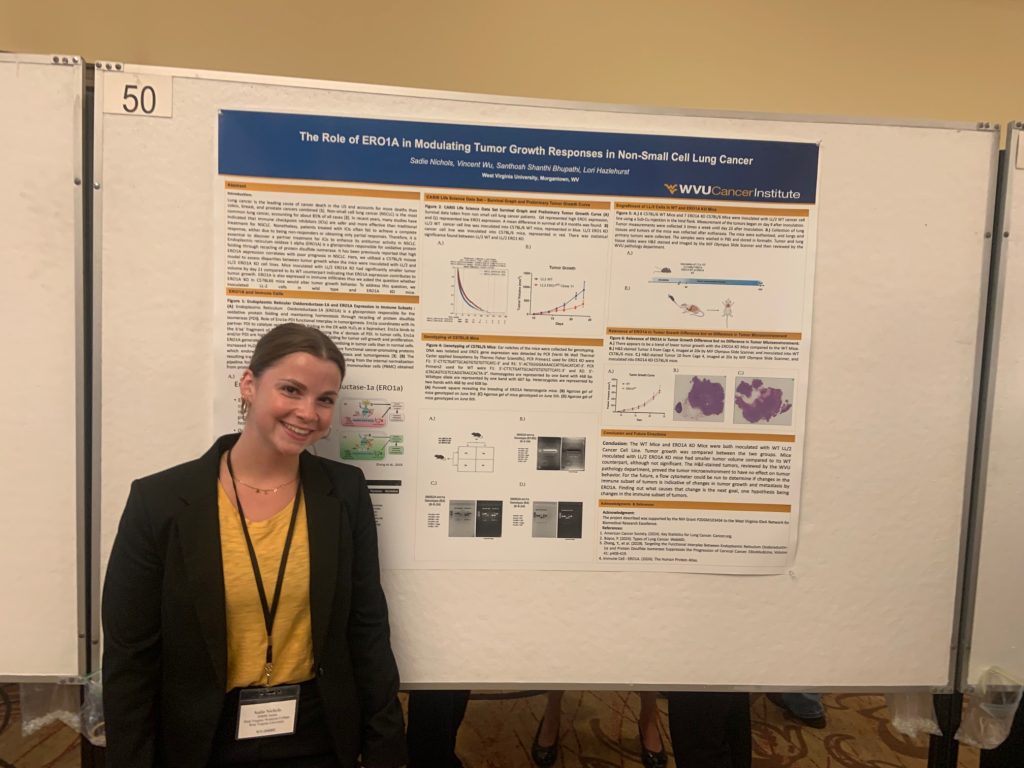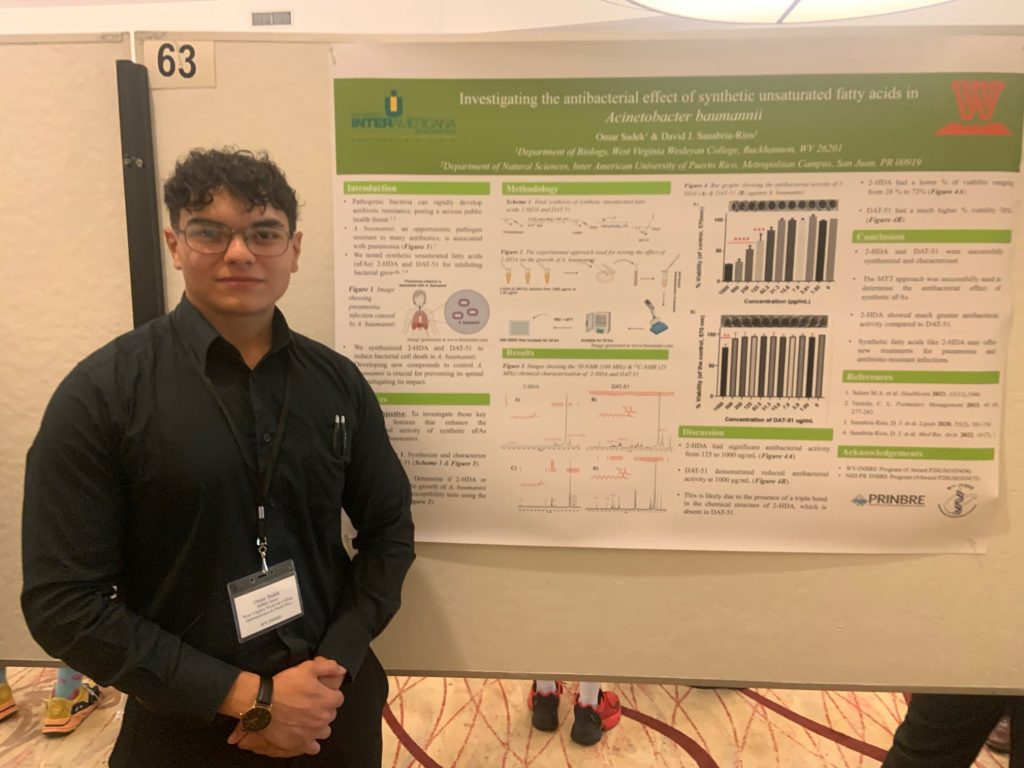about
News
BUCKHANNON, West Virginia – For over 20 years, West Virginia Wesleyan College students have participated in summer research at WVWC, WVU, Marshall University, West Virginia School of Osteopathic Medicine and now, the University of Puerto Rico, as part of the West Virginia IDeA Network for Biomedical Research Excellence summer internship programs.
“Students have participated in a wide range of projects with many going on to graduate programs in the biomedical fields,” Professor of Biology Dr. Luke Huggins said. “These opportunities have been an important part of the biomedical training in the Department of Chemistry and Biology and Environmental Science at WVWC.”
This summer, WVWC took its largest group of student researchers to the symposium with 19 students, four faculty and one alumnus. The 22nd annual WV_INBRE Summer Research Symposium was held at West Virginia University on July 30.
Omar Sadak ’25 experienced a different culture while investigating the antibacterial activity of unsaturated fatty acids on Acinetobacter Baummannii.
“I spent my first week in Puerto Rico touring all the research sites and facilities in San Juan and found that Puerto Rico is a great contributor to scientific research in all fields and is home to many fascinating discoveries,” he said. “I learned that firsthand while I was working with Dr. Sanabria and essentially found a possible new antibiotic for pneumonia. Throughout my summer, I got to experience just how rich in culture Puerto Rico is – whether it’s the amazing food or the fascinating infrastructure you find in Old San Juan and all around the island.”
Sadie Nichols ’25, explored endoplasmic reticulum oxidase 1 alpha (ERO1A), a glycoprotein responsible for oxidative protein folding and its role in non-small cell lung cancer.
“Lung cancer is the leading cause of cancer death in the United States and accounts for more deaths than colon, breast and prostate cancers combined, “she said. “With the staggering high number of lives lost each year due to this horrific disease, I chose this project as it revealed promising preliminary patient data, suggesting that this research in Morgantown, West Virginia, could potentially play a significant role in helping patients suffering with lung cancer.”
Nichols said, “Not only did I gain an immense amount of knowledge on ERO1A, lung cancer, and my project, but I was also able to learn a multitude of lab techniques and writing skills. I was able to become a better critical thinker and presenter. Even animal handling and care, time management and people skills all became prominent qualities I was able to improve on with my time in the WV-INBRE program. I can confidently say that I entered the program as a modest undergraduate student preparing for my senior year and emerged fully prepared for any graduate school and demanding career.”
Sadek also emphasized his time in the program saying that he learned how he needed to perform at the highest level.
Other students presenting at the symposium were: Megan Brozik, Caitlynn Sherman, Nicholas Evans, Gabriel Paxton, Elijah Hanning, Annalise Gentilozzi, Madison Looker, Conner Hollen, Caleb Mazon, Raveena Navalglund, Kyan Gillespie, Bree Moll, Srikiran Nandigama, Sadie Nicholas, Autumn Russell, Isaac Yoneda, Abigail Patterson and Jack Monk. Hayden Hess ’23, a graduate student now at West Liberty University also presented.
Huggins and WVWC faculty Dr. Bruce Anthony, Dr. Charlie Chen and Dr. Melanie Sal also attended the symposium.
ABOUT WEST VIRGINIA WESLEYAN COLLEGE
West Virginia Wesleyan College (WVWC) is a private, four-year residential liberal arts and sciences college in Buckhannon, West Virginia. A tradition of excellence for more than 130 years, West Virginia Wesleyan is home to 14 Fulbright Scholars. The Princeton Review ranked Wesleyan as one of its 2023 Best Colleges in the Southeastern Region of the United States. U.S. News & World Report’s 2022-2023 Best College Rankings designated Wesleyan seventh in Best Value – Regional Universities (South). WVWC offers students nearly 60 majors and 40 minors; graduate programs in athletic training, business administration, creative writing, nursing and clinical mental health counseling; 21 NCAA Division II athletic programs; multiple performing arts groups; and more than 50 organizations. Founded in 1890, the College is closely affiliated with the United Methodist Church and abides by the Wesley doctrine that emphasizes service to others. For more information, visit wvwc.edu.



